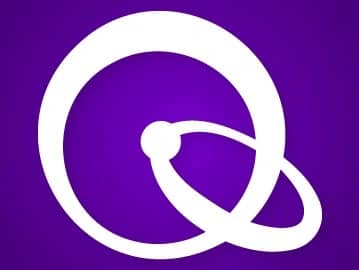위키 구독하기
Share wiki
Bookmark
Quranium
Quranium
**쿼라니엄(Quranium)**은 퀀텀 보안 및 AI 기반 인프라를 Web3 애플리케이션에 제공하도록 설계된 계층 1 블록체인 프로토콜입니다. 인공지능, 블록체인, 사물 인터넷(IoT)의 "컨버전스 계층" 역할을 하면서 Ethereum 가상 머신(EVM)과의 호환성을 유지하는 것을 목표로 합니다. [1] [2]
개요
2024년에 출시된 쿼라니엄은 기존 암호화 표준에 대한 양자 컴퓨팅의 미래 보안 위협을 해결하기 위해 구축된 기본 플랫폼으로 자리매김하고 있습니다. 이 프로젝트의 목표는 양자 컴퓨터가 현재 블록체인 암호화 알고리즘을 깨뜨릴 수 있는 이론적 시점인 "Q-Day"에 대비하여 안전한 Web3 인프라를 구축하는 것입니다. [2] AI 기반 기능을 퀀텀 보안 프레임워크와 통합함으로써 쿼라니엄은 새로운 세대의 지능적이고 자율적인 분산 애플리케이션을 지원하고자 합니다. 또한 디지털 보안에 대한 새로운 표준을 설정하고자 DeQUIP(분산형 퀀텀-해독 불가 인프라 프로토콜)라는 시장 부문을 정의했습니다. [3]
스위스에 본사를 두고 있으며, 아랍에미리트 두바이 다각 상품 거래소(DMCC)와 싱가포르에 추가 사무소가 있습니다. 공동 설립자 겸 CEO인 Kapil Dhiman이 이끄는 50명 이상의 팀으로 구성되어 있으며, Olivia Karlsson이 CEO 최고참모로 근무하고 있습니다. 2025년 6월, 쿼라니엄은 게임, 메타버스, AI 기반 Web3 생태계 부문에서 채택을 가속화하기 위해 Animoca Brands로부터 전략적 투자를 유치했다고 발표했습니다. [1] [4]
제품
QSafe 지갑
2025년 로드맵의 일환으로 쿼라니엄은 QSafe 지갑을 출시할 계획입니다. 이 지갑은 현재 및 미래의 암호화 위협으로부터 사용자 자산을 보호하도록 설계된 퀀텀 보안 멀티체인 암호 지갑으로 설명됩니다. 양자 보안 이후의 보안에 대한 프로토콜의 핵심 초점과 일치하는 안전한 저장 솔루션을 제공하기 위한 것입니다. [1]
기술 및 아키텍처
핵심 설계
쿼라니엄은 계층 1 블록체인으로 설계되었으며, 이는 보안이나 합의를 위해 다른 네트워크에 의존하지 않고도 자체 애플리케이션 및 토큰 생태계를 지원할 수 있는 기본 수준의 프로토콜임을 의미합니다. "컨버전스 계층"이라고 부르는 지분 증명(PoS) 합의 메커니즘을 사용합니다. 이 설계는 프로젝트가 "임무 중요 시스템"이라고 부르는 것에 대한 기본 인프라를 제공하고 디지털 주권을 지원하기 위한 것입니다. 이 프로토콜은 대량의 트랜잭션을 처리하고 확장 가능한 애플리케이션을 지원하기 위해 고 처리량 실행을 위해 설계되었습니다. 또한 네트워크 검증이 일관되고 예측 가능하도록 결정적 합의 메커니즘을 사용합니다. [1] [4]
아키텍처의 핵심 측면은 Ethereum 가상 머신(EVM)과의 호환성입니다. 이를 통해 Ethereum 생태계에 익숙한 개발자는 기존 분산 애플리케이션(dApp)을 마이그레이션하거나 Solidity와 같은 기존 도구 및 프로그래밍 언어를 사용하여 쿼라니엄에서 새로운 dApp을 구축할 수 있습니다. 이 기능은 개발자의 진입 장벽을 낮추고 쿼라니엄과 더 넓은 Ethereum 생태계 간의 상호 운용성을 촉진하기 위한 것입니다. [2] [5]
주요 기능
쿼라니엄의 인프라는 여러 핵심 기술 기능을 중심으로 구축됩니다.
- 퀀텀 보안 코어: 프로토콜의 주요 보안 기능은 양자 내성 암호화(PQC)를 사용하는 것입니다. 여기에는 강력한 클래식 컴퓨터와 미래의 양자 컴퓨터 모두의 공격으로부터 안전하도록 설계된 양자 내성 암호화 알고리즘을 구현하는 것이 포함됩니다. 이 "퀀텀 해독 불가" 설계는 장기적인 복원력을 제공하고 양자 복호화의 새로운 위협으로부터 네트워크의 데이터와 트랜잭션을 보호하기 위한 것입니다. [3] [6]
- AI 기반 인프라: 쿼라니엄은 프로토콜 수준에서 인공 지능 논리를 통합합니다. 이 기능은 지능형 자동화를 지원하고 자율적인 분산 애플리케이션 개발을 가능하게 하도록 설계되었습니다. 기본 계층에 AI 기능을 구축함으로써 프로토콜은 AI 기반 기능을 위한 강력한 환경을 제공하고 AI와 Web3의 교차점에서 애플리케이션을 만드는 개발자를 지원하고자 합니다. [1]
사용 사례
쿼라니엄 프로토콜은 특히 높은 수준의 보안, 확장성 및 지능형 자동화가 필요한 부문에서 다양한 애플리케이션을 지원하도록 설계되었습니다. 잠재적 사용 사례는 다음과 같습니다.
- 게임 및 메타버스: 플랫폼의 고 처리량 기능과 안전한 자산 소유권을 활용할 수 있는 몰입형 게임 및 메타버스 애플리케이션 개발
- AI 기반 분산 애플리케이션: 자율 운영, 지능형 의사 결정 및 복잡한 데이터 처리를 위해 기본 AI 인프라를 활용하는 dApp 구축 및 배포
- 임무 중요 시스템: 디지털 신원 솔루션이나 안전한 공급망 관리와 같이 장기적인 데이터 보안 및 무결성이 필요한 기업 및 정부 시스템에 대한 기본 인프라 제공
- 디지털 주권 및 소유권: 양자 내성 암호화로 보호되는 데이터 및 디지털 자산에 대한 제어 권한을 사용자에게 부여하는 플랫폼 생성
이러한 사용 사례는 기존 Web2 시스템과 분산형 Web3 생태계 간의 안전하고 확장 가능한 브리지를 만드는 프로젝트의 초점에 의해 지원됩니다. [1] [6]
생태계
커뮤니티 및 아웃리치
쿼라니엄은 다양한 소셜 미디어 플랫폼에서 커뮤니티를 구축했습니다. 2025년 9월 현재 공식 X(이전 Twitter) 계정은 57,300명 이상의 팔로워를 보유하고 있으며, 공개 Telegram 커뮤니티 그룹은 78,100명 이상의 회원으로 구성되어 있습니다. [2] [5]
아웃리치 전략의 중심에는 기술 및 Web3 업계의 저명한 인물들과의 대화를 특징으로 하는 글로벌 비즈니스 팟캐스트인 "Quantum Minds Podcast"가 있습니다. 쿼라니엄 팀의 주요 인물들이 진행하는 이 팟캐스트는 AI, 블록체인 및 양자 기술의 혁신에 대해 논의합니다. 주목할 만한 게스트로는 Animoca Brands의 Yat Siu, The Sandbox의 Sebastien Borget, Fetch.ai의 Humayun Sheikh 등이 있습니다. 이 이니셔티브는 사고 리더십과 더 넓은 기술 커뮤니티와의 참여를 위한 플랫폼 역할을 합니다. [4] [6]
수상 및 인정
이 프로젝트는 그 작업에 대한 업계의 인정을 받았습니다. 2024년 쿼라니엄은 DMCC의 최우수 Web3 스타트업 상을 수상했습니다. 2025년에는 Cointelegraph의 최우수 스타트업 피치 경연 대회에서도 우승했습니다. 또한 이 프로젝트는 암호화폐 거래소 Bybit의 후원을 받았습니다. [1]
토큰 경제학
쿼라니엄 네트워크의 기본 토큰은 티커 심볼 $QRN으로 식별됩니다. [7]
- 할당:
- $QRN 토큰에 대한 공개 사전 판매가 2025년 9월 10일 Republic 플랫폼에서 시작되었습니다. 총 공급량 및 특정 할당 비율에 대한 자세한 내용은 공개적으로 자세히 설명되지 않았습니다. [2]
- 유틸리티:
- 거버넌스: $QRN 토큰은 쿼라니엄 생태계 내에서 거버넌스에 사용될 것으로 예상됩니다. 프로젝트 리더십의 공개 성명은 팀과 커뮤니티가 분산형 의사 결정 프로세스에 참여할 수 있도록 하는 데 중점을 두고 있으며, 토큰 보유자는 프로토콜의 미래 개발을 형성하는 데 역할을 할 것임을 시사합니다. [2]
파트너십
쿼라니엄은 성장, 시장 진출 전략 및 생태계 개발을 지원하기 위해 여러 전략적 제휴 및 파트너십을 구축했습니다.
전략 및 기술 파트너
이 프로젝트는 Web3, 기업 및 보안 부문에서 주요 업체와 협력했습니다. 이러한 파트너는 다음과 같습니다.
- Animoca Brands: 게임 및 메타버스에서 쿼라니엄의 채택을 가속화하는 데 중점을 둔 전략적 투자자이자 파트너
- PwC: 기업 채택 및 시장 진출을 지원하는 전략적 시장 진출(GTM) 파트너
- Leaders And Builders (LAB): 쿼라니엄은 AI, DeepTech, Web3 및 양자 분야의 빌더를 지원하는 LAB Residency 프로그램의 공식 블록체인 파트너 역할을 합니다.
- MetaSig
- MatterID
- Hacken: 보안 감사 및 블록체인 보안에 중점을 둔 파트너일 가능성이 높습니다.
- Galaxe
- LumaGames
이러한 파트너십을 통해 쿼라니엄은 Animoca Brands와의 협력을 통해 540개 이상의 Web3 회사 네트워크에 접근할 수 있으며 기술 및 사업 개발 노력을 지원합니다. [1] [2]
미디어 파트너
"Quantum Minds Podcast"를 위해 쿼라니엄은 도달 범위와 참여를 확대하기 위해 광범위한 미디어 매체와 파트너십을 맺었습니다. 미디어 파트너 목록에는 Bitcoin.com, Cointelegraph, Crypto.News, The Blockopedia 및 Blockchain Reporter 등 수십 개의 블록체인, 암호화폐 및 기술 부문 간행물과 뉴스 사이트가 포함됩니다. 이 광범위한 네트워크는 프로젝트의 콘텐츠와 사고 리더십을 전 세계 청중에게 배포하는 데 도움이 됩니다. [3] [4]
잘못된 내용이 있나요?
